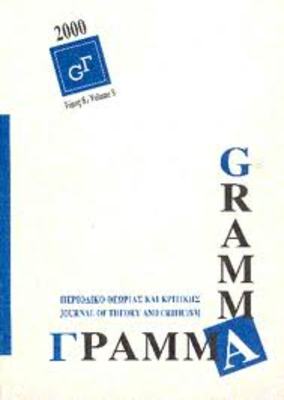A sisterhood of women : Marsha Norman’s Getting out and The Laundromat
Part of : Γράμμα : περιοδικό θεωρίας και κριτικής ; Vol.2, No.1, 1994, pages 141-147
Issue:
Pages:
141-147
Author:
Abstract:
Despite their dreary milieu, these are plays of healing and hope. In Getting Out Arlene learns to integrate the violent past she has disavowed, and in The Laundromat Deedee makes her first tentative steps towards emancipation. Marsha Norman is not simply anti-men; her female figures, especially the heroines’ mothers, can be equally destructive. Arlene herself is both victim and victimizer, though some critics have blamed her fate solely on society. A sympathetic neighbour helps Arlene to free herself from her dependence on men and to reconcile herself to both her bleak future and her criminal past. In The Laundromat the betrayed wife Deedee stifles her awareness of her misery by chatting incessantly, but is finally made to acknowledge her frustrations and, in the end, welcomes the opportunity of reflecting quietly on her life. Alberta, in turn, is prevented from turning the washing of her deceased husband’ s clothes into a morbid ritual. Although no permanent friendship is established, both carry a sense of female sisterhood into their otherwise desolate lives.
Subject:
Subject (LC):
Notes:
Περιέχει βιβλιογραφία




